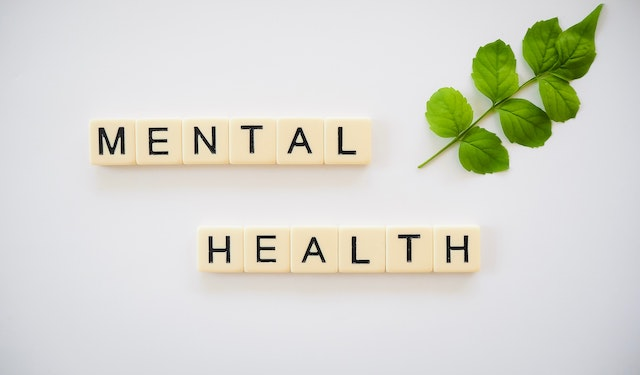
Mental Health in usa
Mental health is a vital component of overall well-being, yet it often remains misunderstood and stigmatized. In this article, we aim to provide a comprehensive overview of mental health, highlighting its importance, common challenges, and actionable steps to promote mental wellness.
What is Mental Health?
Mental health encompasses emotional, psychological, and social well-being. It influences how individuals think, feel, and behave in daily life. Good mental health enables people to handle stress, relate to others, and make decisions effectively. Conversely, poor mental health can lead to difficulties in functioning and a diminished quality of life.
Key Components of Mental Health
- Emotional Well-being: The ability to manage emotions such as happiness, sadness, anger, and fear.
- Psychological Resilience: The capacity to recover from adversity and adapt to challenges.
- Social Connections: Building and maintaining healthy relationships with others.
Common Mental Health Disorders
Mental health disorders can affect anyone, regardless of age, gender, or background. Here are some of the most prevalent conditions:
- Anxiety Disorders: Characterized by excessive fear or worry. Examples include generalized anxiety disorder (GAD), panic disorder, and social anxiety disorder.
- Depression: A persistent feeling of sadness or loss of interest in activities once enjoyed.
- Bipolar Disorder: Involves extreme mood swings ranging from manic highs to depressive lows.
- Post-Traumatic Stress Disorder (PTSD): Develops after experiencing or witnessing traumatic events.
- Obsessive-Compulsive Disorder (OCD): Involves recurring thoughts (obsessions) and repetitive behaviors (compulsions).
The Importance of Mental Health
Benefits of Good Mental Health
- Improved Relationships: Healthy mental states foster positive interactions with family, friends, and colleagues.
- Enhanced Productivity: Mental wellness boosts focus, creativity, and efficiency.
- Better Physical Health: Reduced risk of chronic illnesses such as heart disease, as stress and mental health are closely linked.
The Impact of Neglected Mental Health
Neglecting mental health can lead to severe consequences, including:
- Strained relationships.
- Difficulty maintaining employment or academic performance.
- Increased risk of substance abuse.
- Higher likelihood of developing physical health issues.
Promoting Mental Health: Practical Tips
Taking proactive steps to maintain mental health is essential. Here are some evidence-based strategies:
Self-Care Practices
- Mindfulness and Meditation: Practices like deep breathing and guided meditation can reduce stress.
- Physical Activity: Regular exercise releases endorphins, which improve mood.
- Balanced Diet: Nutrition plays a crucial role in mental health. Focus on a diet rich in omega-3 fatty acids, whole grains, and fresh produce.
- Adequate Sleep: Aim for 7-9 hours of quality sleep per night.
Building Support Systems
- Stay Connected: Nurture relationships with family and friends.
- Seek Professional Help: Don’t hesitate to consult therapists or counselors when needed.
- Join Support Groups: Connecting with others facing similar challenges can be empowering.
Managing Stress Effectively
- Prioritize tasks and set realistic goals.
- Learn to say no when overwhelmed.
- Practice relaxation techniques, such as yoga or aromatherapy.
The Role of Society in Mental Health
Reducing Stigma
Society plays a critical role in shaping attitudes toward mental health. Reducing stigma involves:
- Raising Awareness: Public campaigns and education can normalize conversations about mental health.
- Encouraging Open Dialogue: Creating safe spaces for people to share their experiences.
- Challenging Stereotypes: Dispelling myths and misconceptions about mental illnesses.
Accessibility to Mental Health Services
- Affordable Care: Advocating for policies that make mental health care accessible and affordable.
- Workplace Support: Encouraging employers to offer mental health resources and flexible work arrangements.
- School Programs: Introducing mental health education and counseling services in schools.
Actionable Steps for Enhancing Mental Health Awareness
Integrate Mental Health into Daily Life
- Regularly check in with your feelings and emotional state.
- Engage in activities that bring joy and fulfillment.
- Set boundaries to protect your energy and time.
Advocate for Others
- Support friends and family who may be struggling.
- Volunteer with mental health organizations.
- Use social media to spread positive messages about mental health.
Key Statistics on Mental Health
- According to the World Health Organization (WHO), depression is a leading cause of disability worldwide.
- Anxiety disorders affect approximately 264 million people globally.
- Suicide is the second leading cause of death among 15-29-year-olds.
Resources for Mental Health Support
- National Helplines: Many countries offer free, confidential mental health hotlines.
- Online Therapy Platforms: Access professional help from the comfort of your home.
- Community Centers: Local organizations often provide support groups and counseling services.
FAQs
- 1. What is mental health awareness?
- Mental health awareness refers to the effort to educate people about mental health issues, reduce stigma, and encourage conversations about mental well-being. It aims to help individuals understand mental health challenges and recognize when to seek support.
- 2. Why is mental health awareness important?
- It plays a crucial role in breaking the stigma surrounding mental health, increasing access to resources, and promoting early intervention. The more people understand mental health, the more likely they are to support those who are struggling and prioritize their own mental well-being.
- 3. How can I support someone with a mental health condition?
- You can listen without judgment, offer emotional support, encourage professional help, and educate yourself about their condition. It’s essential to be patient and provide a non-judgmental space where they can express themselves.
- 4. What are the signs of mental health issues?
- Some common signs include persistent sadness, extreme mood swings, withdrawal from social activities, difficulty focusing, changes in eating or sleeping patterns, and feelings of hopelessness. If someone shows these signs, it’s important to offer support and suggest seeking help.
- 5. How do I start a conversation about mental health?
- Approach the topic with empathy and care. Choose a quiet, private place, listen actively, and validate their feelings. Avoid offering unsolicited advice and instead ask open-ended questions like, “How have you been feeling lately?”
Conclusion
Mental health is an integral part of a fulfilling and balanced life. By understanding its importance, recognizing common challenges, and taking actionable steps to promote wellness, individuals and communities can create a supportive environment for all. Let’s continue to break the stigma and prioritize mental health for a brighter, healthier future.



